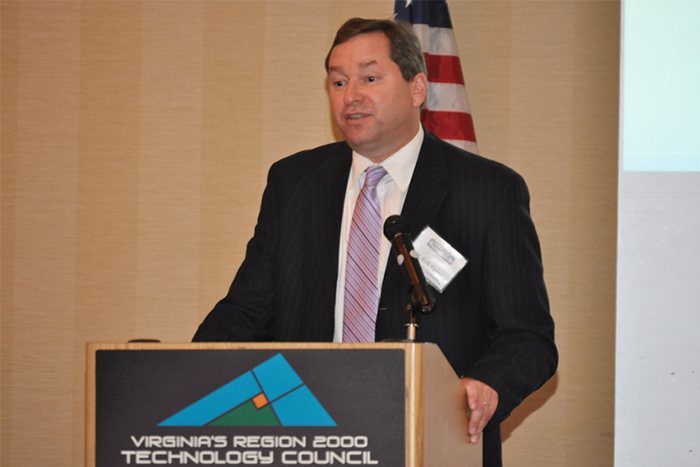Getting the Entrepreneurial Bug

Erik Pages ’83 (political science, psychology) is founder and president of EntreWorks Consulting, an economic development consulting and policy development firm focused on helping communities and organizations achieve their entrepreneurial potential. EntreWorks works with a diverse base of clients including state and local governments, chambers of commerce, educational institutions and nonprofits.
How did Dickinson prepare you for your current career/endeavor?
I would like to be able to say that I always wanted to be an entrepreneur and had this wish back at Dickinson, but that would be a lie. However, I do believe that a liberal-arts education is the best preparation for being a business owner. Entrepreneurship is all about ambiguity and uncertainty—you have to be able to deal with that every day. It really is a mindset, a different way of thinking and acting. It’s not a grouping of skills like writing a business plan or marketing. The open-minded perspective and the diverse skills you get via the liberal arts is good preparation for this kind of thinking.
“Just wanting to be [an entrepreneur] is not enough. You have to be passionate about something and really know your industry or market.”
What was your "aha" moment?
I really didn’t get the entrepreneurial bug until my late 30s, which actually is pretty typical. Most successful entrepreneurial ventures are started by people in their 30s and 40s—and now even later in life. I was working for an arm of the Kauffman Foundation and hanging out with lots of entrepreneurs who inspired me to take the leap myself. I had a pretty good idea, and I knew my industry very well so I felt well prepared. And, I thought, if not now, when?
What inspires you?
I am an economic development consultant. I work with communities, and my basic pitch is really simple: You are better off trying to help local people start their own businesses than just waiting for some big company to miraculously relocate to your town. So, I get the pleasure of working with entrepreneurs almost every day—and not just people trying to build a business, but also the many social entrepreneurs who are trying to change the economic trajectory of their communities. In Pennsylvania, we have so many towns and cities that were once great, but are now down on their luck. My business tries to help them. We don’t always succeed, but I’m passionate about the work. We’re doing it one business and one job at a time.
What advice would you offer to the entrepreneurs of tomorrow?
There’s never been a better or easier time to be an entrepreneur—it’s cheaper to start a business, easier to raise money and easier to find customers than it ever was. Everybody has the potential to be an entrepreneur, but just wanting to be one is not enough. You have to be passionate about something and really know your industry or market. If you have those key ingredients, go for it.
What’s next?
I have had the pleasure of being in business for almost 14 years, and I hope that I can keep enjoying success. For the last couple of years, I’ve been working on what we call economic transition issues, i.e., what happens in communities that lose their economic anchors? As one example, I’ve been working a lot with communities from the coal regions of Appalachia to help them rethink their local economic foundations. As someone who grew up in Pennsylvania in the 1970s and 1980s, this work hits home. I want to make sure that other places can better respond when they face an economic hit like this in the future.
“Entrepreneurship is all about ambiguity and uncertainty—you have to be able to deal with that every day. It really is a mindset—a different way of thinking and acting. It’s not a grouping of skills like writing a business plan or marketing. The open-minded perspective and the diverse skills you get via the liberal arts is good preparation for this kind of thinking.”
Learn More
- "Owning It" (additional entrepreneurial alumni Q&As)
- Spring 2016 Dickinson Magazine
- "Entrepreneurs don't just grow on trees"
- Latest News
Published April 12, 2016